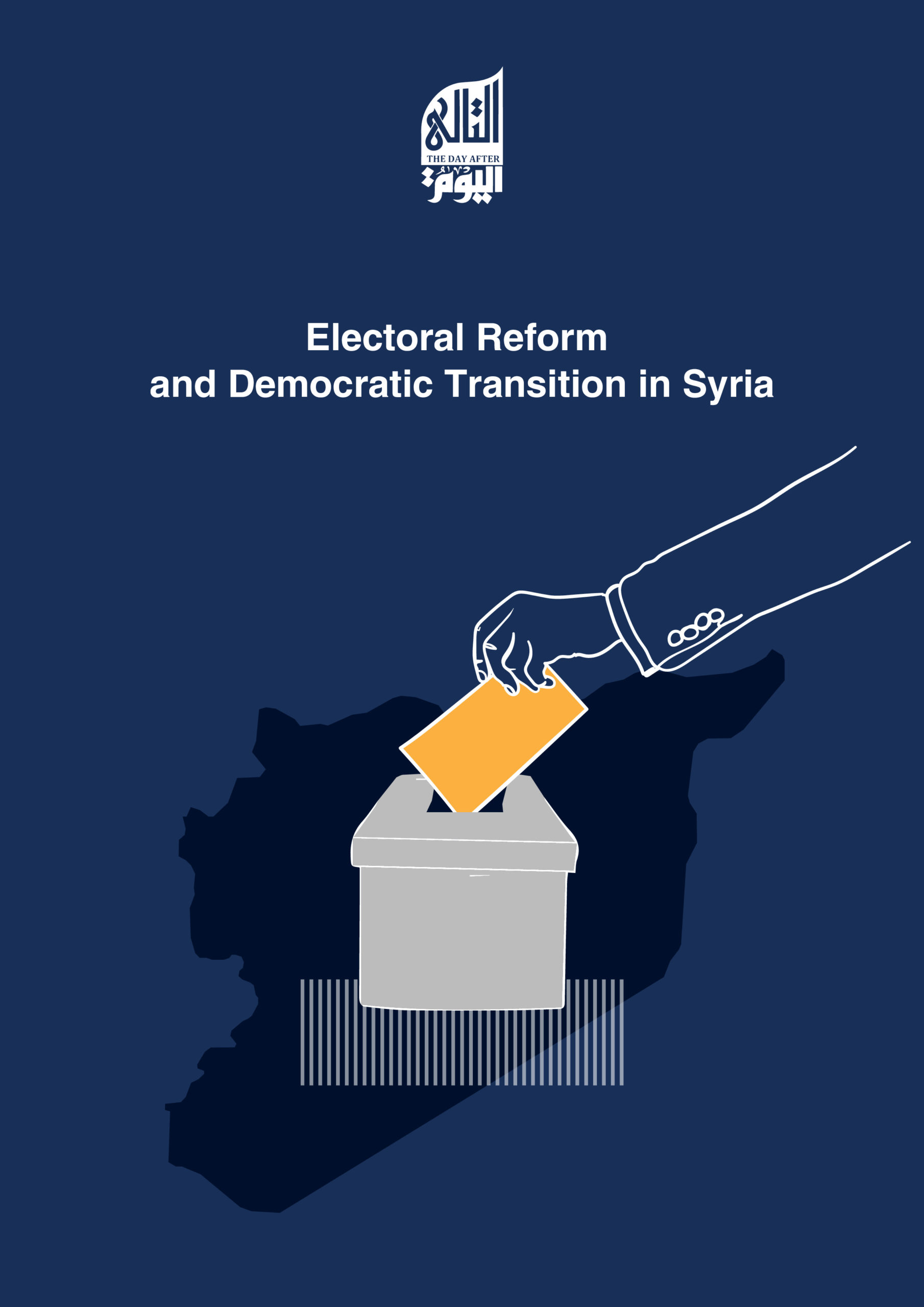
Date: September 2022
The summary of the report is available in: Arabic / English
Within The Day After’s efforts to contribute to the launch and success of the transitional period and the establishment of a democratic state in Syria, the Association took the initiative to work on the “Electoral Reform and the Democratic Transition in Syria” project as stipulated in the Security Council Resolution 2254, in cooperation with a group of researchers with different specializations and with the support of the European Union and German Corporation for International Cooperation (GIZ).
In this context, the following report includes an analytical and critical review of the legal and institutional frameworks pertaining to elections in Syria and provides a vision and recommendations for future electoral processes in the country.
This report, addressed primarily to the actors involved in the Syrian issue, contains the most important elements required to be included in a future Syrian electoral system to ensure a political transition compatible with the demands of the Syrian people in building a state of law and citizenship based on equality for all.
this report argues that the success of future elections in Syria is dependent on a comprehensive process of legislative reform. Such a process must not only cover laws related to elections and that regulate the electoral process, but also to all legislation that indirectly related to elections such as the rules governing the formation of political parties, the work of civil society organizations, the establishment of associations, freedom of expression, and media neutrality. This also includes other rights necessary
for the conduct of democracy and the formation of a state of citizenship, especially curtailing executive overreach, particularly represented in Syria by the Presidency of the Republic and the security services.
Considering the foregoing, this report seeks to achieve the following objectives:
- Provide a roadmap for the electoral reforms required to ensure free and fair elections that adhere to internationally approved election standards in terms of ensuring the participation of all groups of Syrians, both those inside and outside Syria, while preventing discrimination on the basis of religion, race, political affiliation, opinion, ideology, ethnic and social background, wealth, lineage, or any other basis.
- Providing accurate technical recommendations to the actors involved in the Syrian issue, especially focusing on the rights of historically marginalized groups in Syria and taking into account gender sensitivity, women’s rights, and the rights of IDPs and refugees, the involvement of Syrian civil society, and impartial international monitoring of the electoral process.
- Provide a negotiation tool that can be used by the major actors involved in the Syria crisis, including the Office of The United Nations Special Envoy for Syria and representatives of Syrian civil society within the Constitutional Committee.
- Provide a precedent that can be used as a reference point for any future effort aimed at raising public awareness among Syrians about electoral rights and the conduct of electoral processes, as well as building the capacities of Syrian civil society and political groups on matters related to elections.
